So, you want to learn piano! That's exciting news. Unfortunately, it can be overwhelming to choose the right piano books when you're a beginner pianist. Here's the best piano books for beginners at every age level.
Brand new to the world of piano? Make sure you practice these essential finger exercises for beginners and learn these easy classical pieces to sharpen your skills.
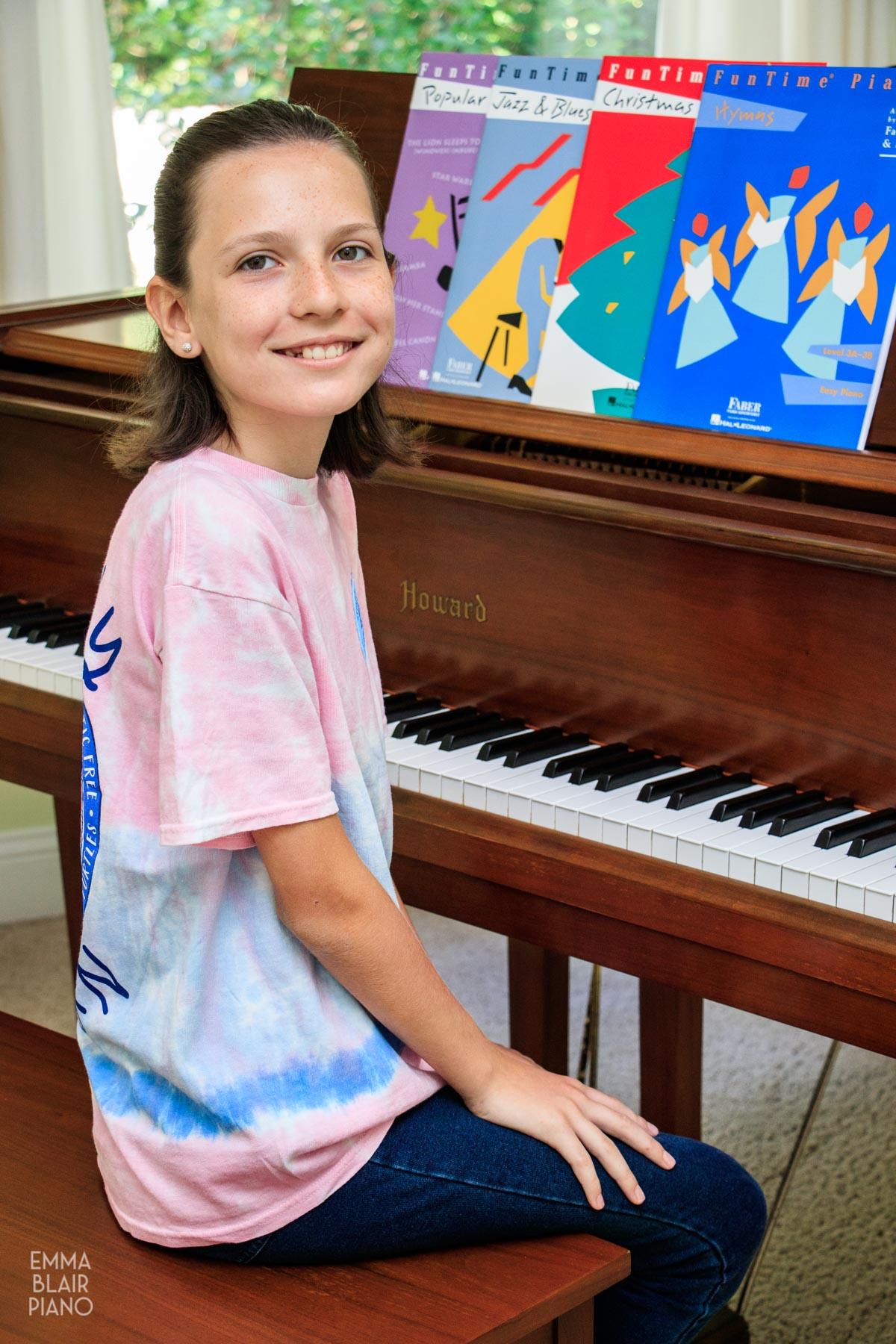
FAQs
A good piano curriculum should be comprehensive (teaching theory, technique, and repertoire), easy to understand, and most of all, fun to play.
I highly recommend the Faber Piano Adventures curriculum for young children, older kids, and teens who are starting to learn piano. The Faber curriculum contains many wonderful pieces that slowly build in difficulty. There are also many supplementary books of popular music, jazz, Christmas, and hymns at each level, so there's always something fun to play!
It's best to wait to start piano lessons for your child until he can sit still and focus on one task for at least 15 minutes. In addition, his hand must be large enough to reach at least 5 keys (an interval of a fifth) on the keyboard. Most children are ready to start piano when they are 6 or 7 years old, depending upon their physical and mental development.
No! It's never too late to start learning the piano and enjoying music. In fact, as an adult, you can learn many things faster than a child can.
If you or your child wish to make progress in piano, you absolutely need a piano teacher. Making the commitment to weekly private lessons will encourage you or your child to practice consistently and will make your musical journey much smoother and more enjoyable. If you're not sure where to start, learn what to look for in a good piano teacher.
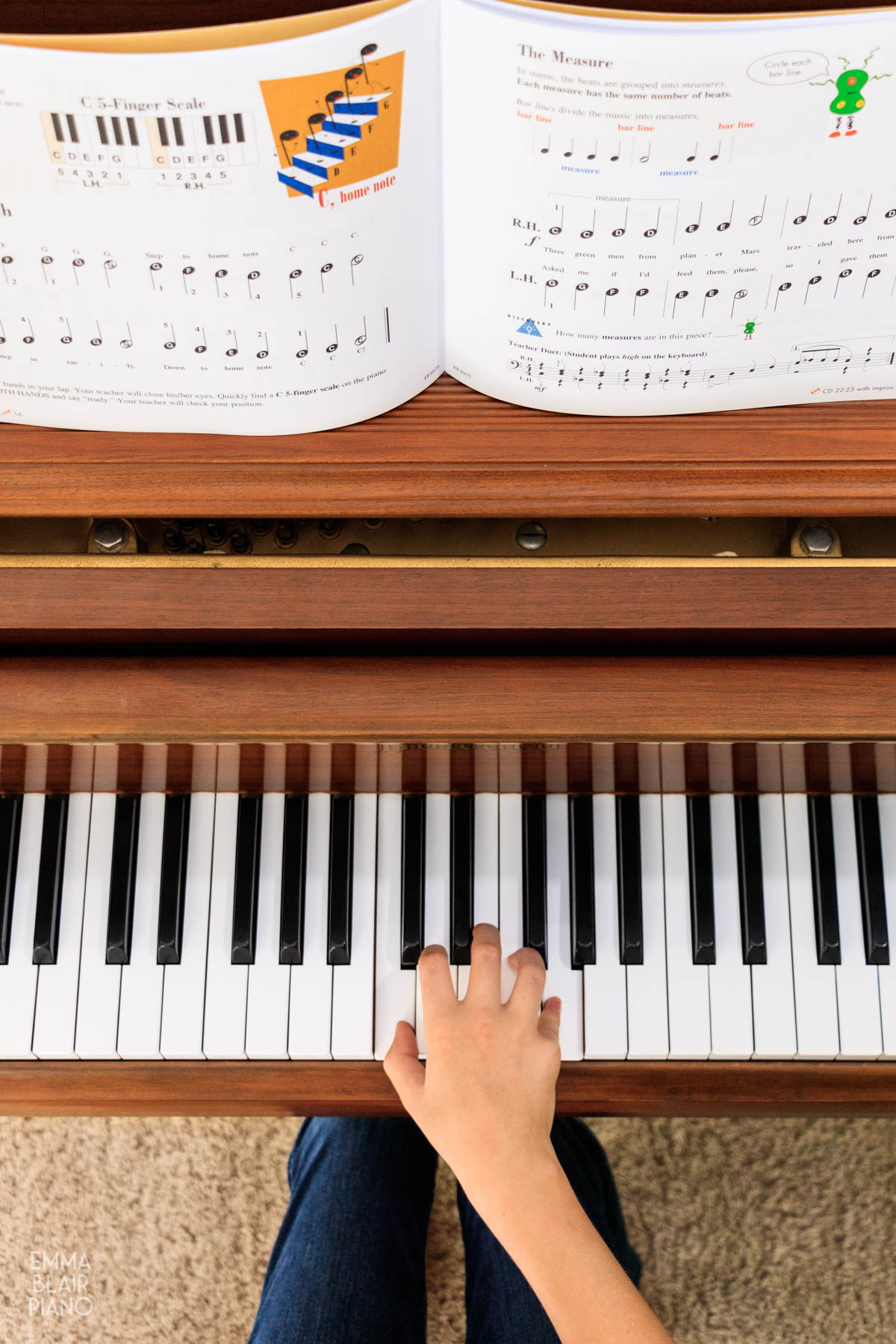
Child Beginners
Young Children (3-5 Years Old)
Most children at this age aren't quite ready to start with formal piano lessons and curriculum, but they should definitely be encouraged to play around on the keyboard and experiment with sounds and rhythms. Cultivating a love of music now will help motivate your child to study music more seriously when he is older.
If you do want more formal music studies for your baby, toddler, or young child, I recommend enrolling him in Kindermusik.
Young Children (6-8 Years Old)
Most children around this age are interested in music, and are ready to start piano lessons. Many piano teachers will recommend the Faber My First Piano Adventures (affiliate) series to teach young children the basics of note reading, treble and bass clefs, simple time signatures, steps and skips, and note values.
My First Piano Adventures consists of three books with one book at each level (Levels A-C). Once the student has advanced to Primer level books in the Piano Adventures series, he can begin using the PreTime supplemental books for hymns, Christmas, jazz, and popular music (all affiliate links).
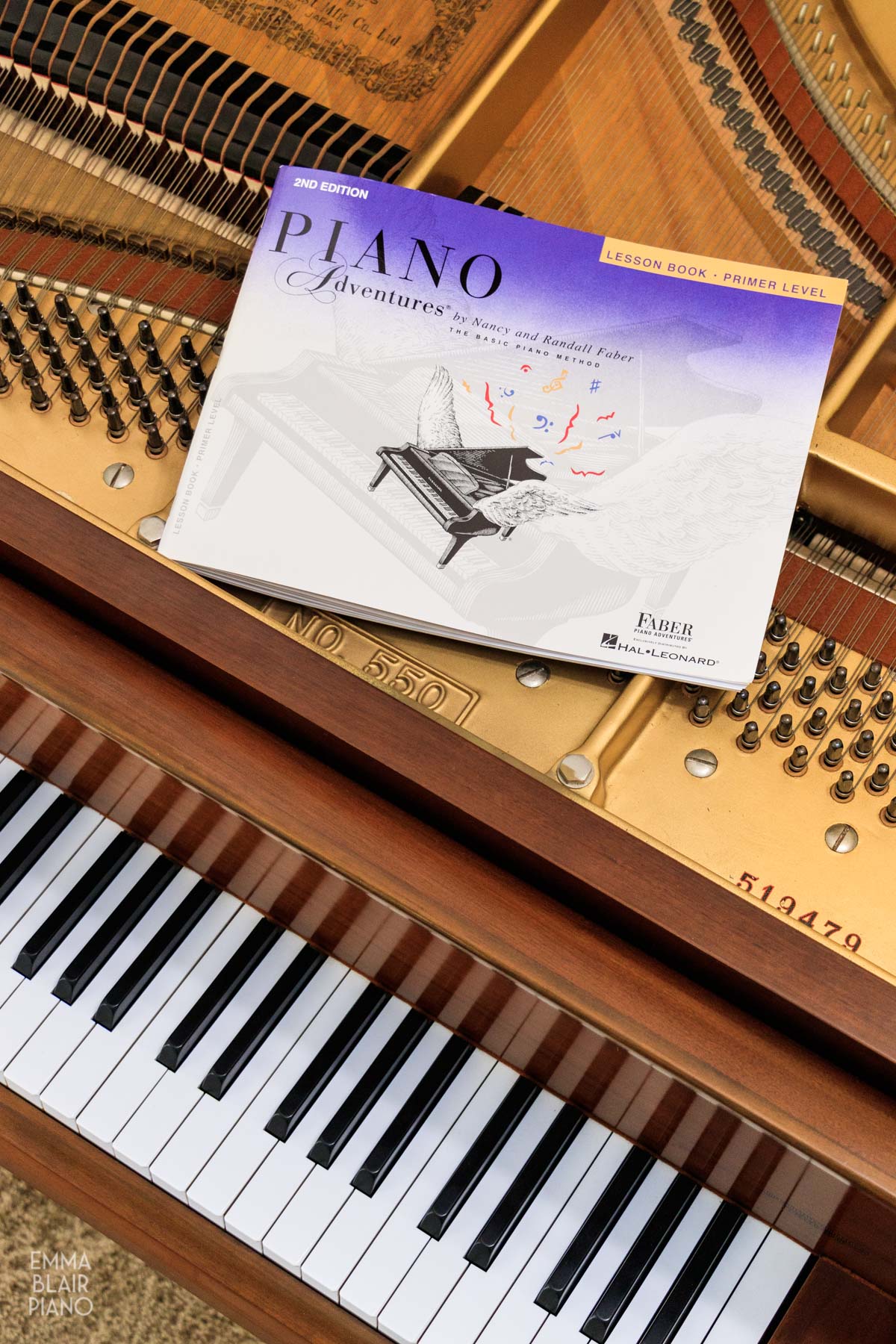
Older Children (9-12 Years Old)
Children in this age range have longer attention spans, larger and stronger hands, and can learn new concepts more quickly than their younger counterparts. They'll enjoy learning out of some "little kid" music books, but will also want more "cool music," like teenagers.
It's best to use the Faber Piano Adventures curriculum starting at Primer level (affiliate) for beginners in this age range.
Students in this age range can play pieces from sheet music and from the Faber supplemental books, which range in difficulty from Primer all the way to more advanced levels. These extra books contain piano hymns, jazz, ragtime, popular, and Christmas music at all different levels.
One can also find easy-to-play arrangements of popular music and YouTube hits online, often as a free download or for a low cost.
Teen Beginners
Accelerated Piano Adventures (affiliate) is the best curriculum for teens who want to learn the foundations of piano while having fun. The curriculum includes books for repertoire, performance, sight reading, theory, and technique, along with books for popular music.
As with any curriculum, it's easy to supplement the basic books with specific pieces that the student wants to learn. Minecraft soundtracks, classic Disney songs, YouTube piano hits, or arrangements of pop songs are great for teens to learn. There's an abundance of easy hymns for playing at church, and lots of great jazz, boogie, and ragtime pieces that are a lot of fun to play.
As with any teen beginner, you want to make sure they're challenged in their musical skills while having a great time and avoiding frustration. If your teen is avoiding their practice time, that means they don't love their assignments, and it's time for a change. You'll definitely want to check out my 15 tips for motivating teens to practice the piano for additional information.
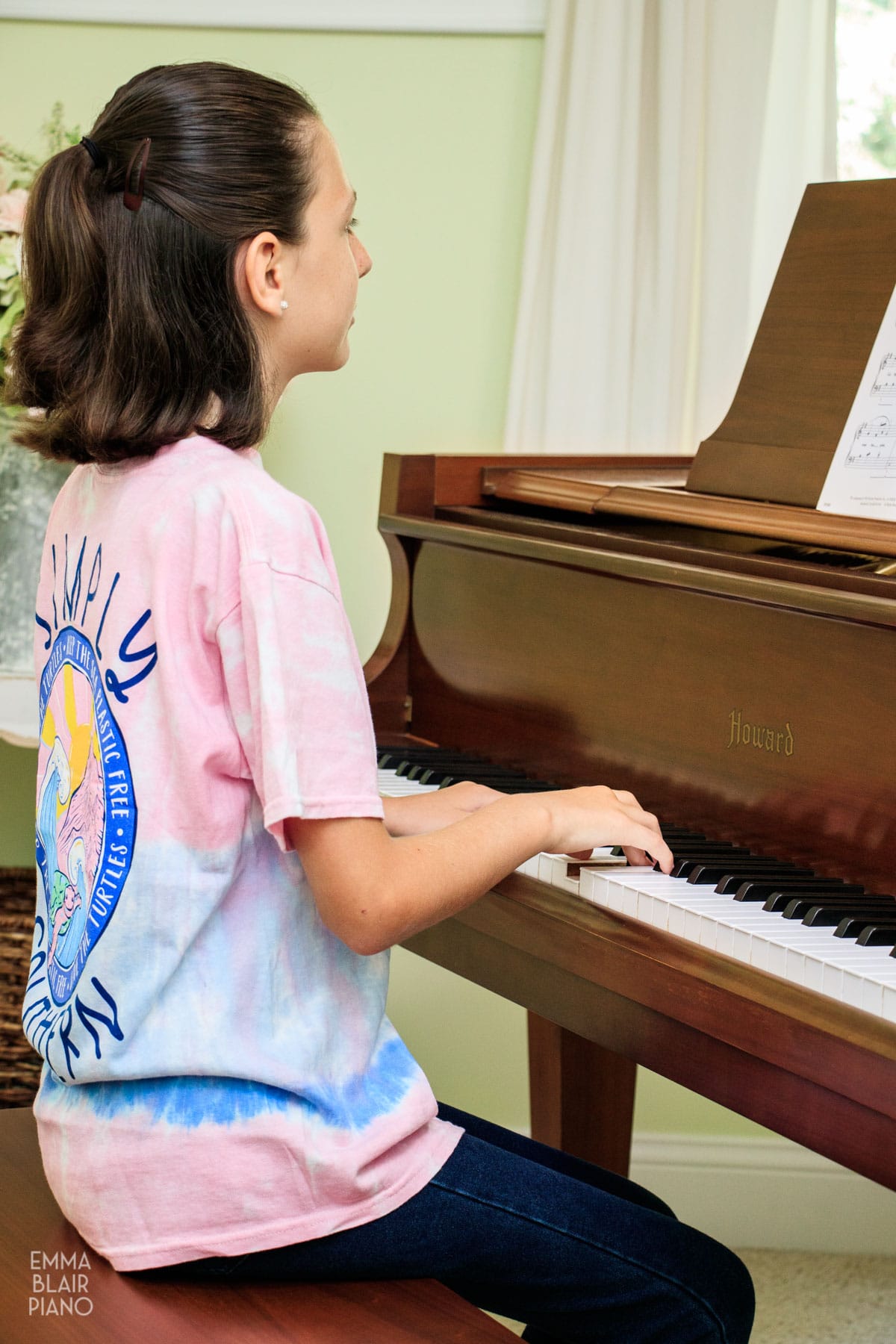
Adult Beginners
Whether you studied music in school or have never played before, I'd recommend starting with the Faber Piano Adventures All-In-One Piano Course (affiliate). It reviews basic music theory while helping you learn classic tunes and original pieces that are fun to play. The spiral binding helps it lay flat on the music stand, too.
If you have played the piano in the past but need a refresher, start with the Accelerated Piano Adventures book instead, as it covers the material at a faster pace.
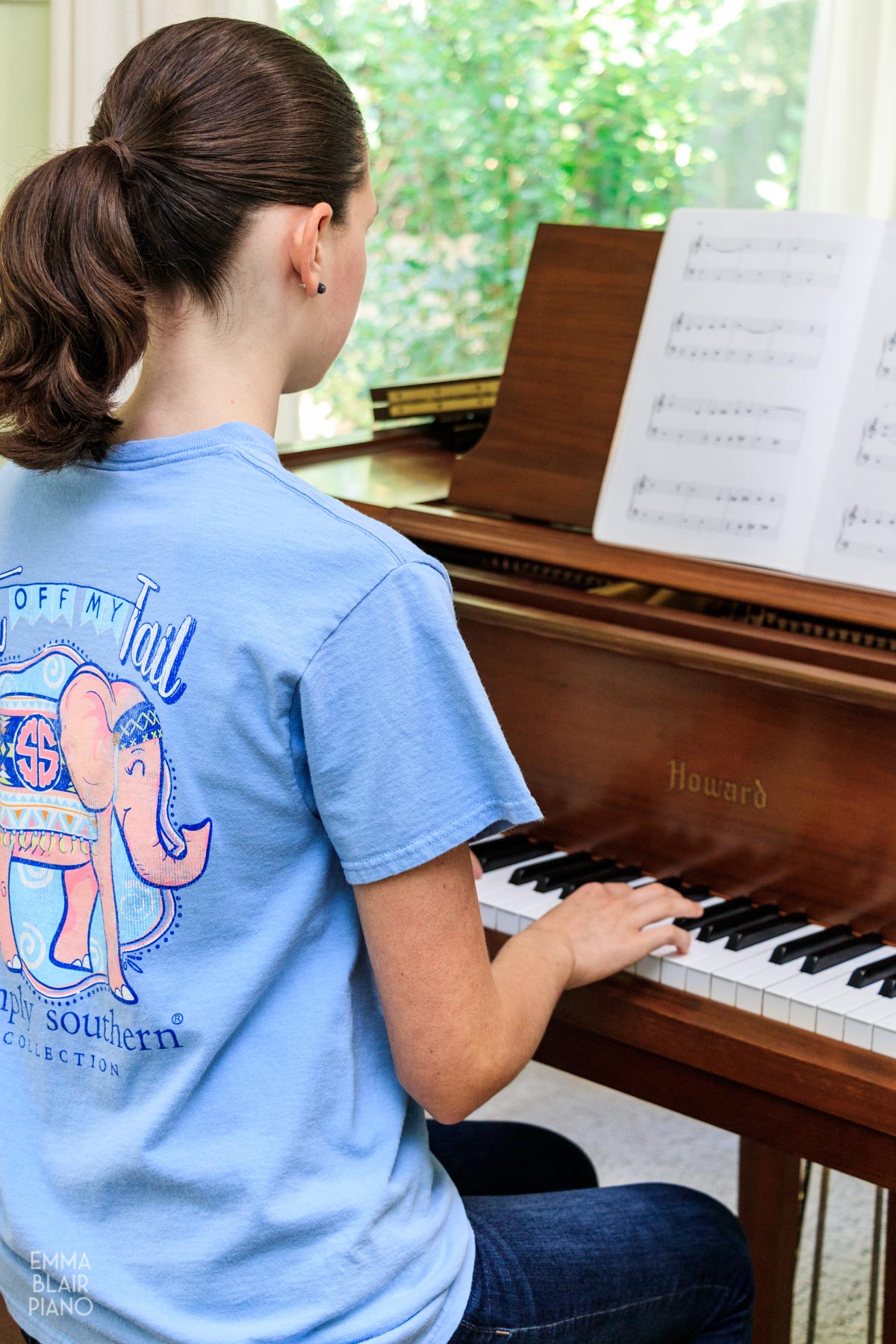
Conclusion
I definitely recommend using the Faber Piano Adventures curriculum for beginners of any age. It's a popular curriculum used throughout the world, and helps you learn piano in an easy-to-understand way while having fun.
Are you a piano teacher with beginner students, or are you a piano parent of a beginner? Let me know your thoughts about what curriculum or individual books have worked the best with your beginner. I'd love to hear from you!
Other Learning Piano Resources
You must use the category slug, not a URL, in the category field.Follow Emma Blair Piano on Pinterest, Instagram, Facebook, Twitter, and YouTube!
If you enjoyed this post or found it helpful, please leave a comment below. You'll make my day!


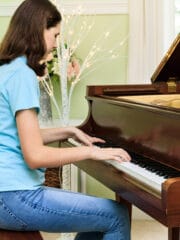
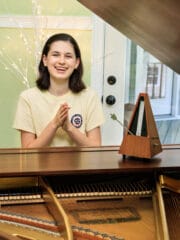
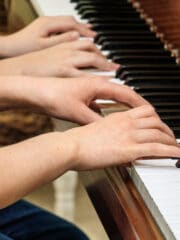

Rev Jacob a singh
I would like to improve on scales
Emma
Slow, consistent practice is the best way to improve your scales. Make sure to use the right fingering, and use a metronome to play at a steady pace and gradually increase your speed.
Amy Aubrey
What have you found to be the best way to have students memorize note names and place on the keyboard. I have noticed with different students that they learn a song… but struggle to sight read/notice accidentals…. Any suggestions?
Emma
Using the groups of two and three black notes is very helpful for students to remember where the notes are on the keyboard, especially if they're new beginners. Using the treble clef to point out the G line and the bass clef to show the F line are also helpful tricks for reading on the staff. The old mnemonics like Every Good Boy Deserves Fudge and FACE for the line and space notes are good. My favorite way to help students remember notes on the staff is to use the Note Rush app, which makes it easy and fun to practice note reading. Hope this helps!